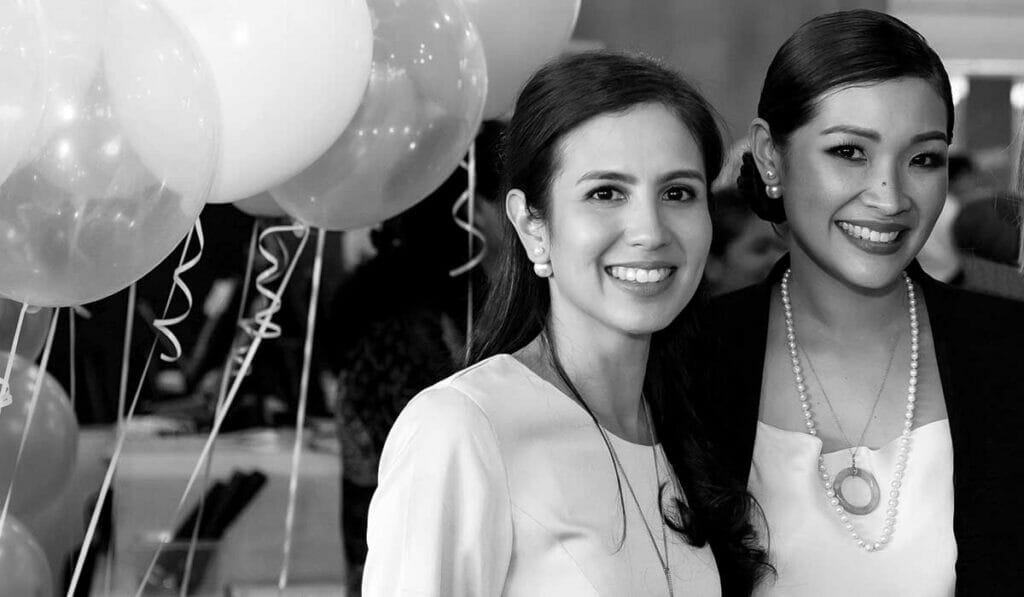Dynamic, innovative and young. These are the qualities of the next generation of leaders who are making waves in their respective fields. We recently had the opportunity to catch up with four sets of young individuals to hear from them what their individual experiences are, what drives them and most importantly, what is their secret to success.
Yong Mien Dee and Nurlin Salleh , Co-founders of LinDees Playland
Nurlin Salleh (NS): Mien Dee and I met a couple of years ago. We were brought together under a women’s leadership organization, and we built close ties. Then just over a year ago, Mien Dee brought up the idea of starting a business together. I’ve never started my own business. I’m a management consultant by profession, a partner with Boston Consulting Group, so I’m not much of a risk taker. But Mien Dee is an entrepreneur, so when she came and said, “Why don’t we try something together?â€
We really felt that there was a need or demand for a safe space where kids could play and enjoy themselves, while their parents were able to either spend time with their families or socialise with their friends or do some work and hold meetings. A space that allowed both parents and children to thrive. We also realised that existing playlands are very westernised. There’s not one which we can truly say is Malaysian, that highlights and showcases the beautiful parts of Malaysia. So we wanted to do that too. Usually, you’d have a playland with a small cafe, or a restaurant with a small play area, but nothing that really truly is a playland, a restaurant, and a co-working space, all in one.
Yong Mien Dee (MD): I started my career in the US, in PwC Chicago and then I came back to work in Malaysia. After working in the government for three years, I stepped out to start my entrepreneurial journey. The first company I started was a software company that sold software to universities and colleges, and even then I knew I wanted to be in the education business. I then moved on to creating my own product, which is Kidxy. Kidxy. com is actually an e-commerce site for kids activities. I built that platform from scratch, and it’s my current full time job. This is my, our, second job.
In terms of the market, let’s look at it from an early childhood perspective because we cater for kids from zero to 12 years old. So you have play schools, you have playgrounds, you have daycare centres, right? But you don’t have a place that has a playground together with a coworking space and a restaurant.
NS: Early childhood development (ECD) is necessary because research shows that between zero to five years old is when the child’s brain develops the most. That’s where we should be spending a lot of our time to ensure that they are given the experience that they need to be able to succeed in the future. That’s why we wanted to build a space that is dedicated specifically for zero to two year olds, which is very sensorial. Kids in our playland don’t have to wear socks, and the reason why we explicitly said don’t wear socks is because of the sensorial experience, your feet you need to be able to feel the ground to get the full sense of things. We consciously wanted LinDees to offer something more comprehensive, holistic because if you think about a lot of ECD plans available today, it’s all very much focused on gross motor development which is all physical. We do have areas to develop gross motor skills, but we also wanted to make sure we had areas that develop fine motor skills, like our little art centre, and a space to develop cognitively which are the reading areas. We wanted them to also really play because kids today are so stuck on their devices that they’ve forgotten how to play. We realise that it’s important for the space to not just focus on one thing, but also allow them to really play and learn through play.
We’re not a kindergarten, we’re a playland and that was a conscious choice.
MD: We have eight different sections of the ground that let’s children do different things and it’s very different things and it’s very different from the regular playland that are predominantly slides and ball pits. We want them to feel that they can just play and experience and explore, versus in school or kindergarten where you have a schedule. Our activities change monthly and we cover all kinds of topics so it doesn’t get boring.
NS: Since the beginning, our concept was always for both the kids and parents, because as parents, we understand the struggle. You go somewhere and you’re sitting there waiting for the kids and thinking “there’s nothing for meâ€. So On top of the kids activities, we also have parents activities. We arrange painting class for parents, there’s parenting talks, a CPR class, and even a talk on essential oils. We want to make sure that whatever we offer here in LinDees is for the kids, but also the parents.
MD: I think the other point here is when we were building this, it’s important to point out that we want to bring mothers back to work as well. After they’ve given birth, we want to empower them and encourage them that there’s a safe space that allows you to do both. For working moms, we have a little flexibility. We want them to come pick their kids up from school, come here, feed them, let them play, while you continue to do your own work. We wanted to have an environment that is able to cater to this, so it’s important for us from the getgo to create a space that caters to a range of different scenarios.
NS: I believe education globally, not just in Malaysia, is undergoing a huge revolution. The old way of teaching is no longer necessarily relevant and by education, I mean everything from curriculum and syllabus to methods of teaching to teachers themselves. I think every country is trying to adapt and evolve to the requirements necessary.
In Malaysia, we also are trying to do that but there will be a little bit of a challenge. It’s a struggle, because getting people to change the way they do things is always hard, right? But it’s important that it is done because it’s important for us to be able to remain competitive in the global landscape for our economy, going forward. The good news is you see areas and pockets of education institutions that are starting to realise this and starting to take those matters into their own hands to adopt the various changes. You see that change through virtual learning, teleconferences, you see that through more emphasis on social development, health and the like. All of that is critical and important.
Early childhood education is absolutely critical, but today in Malaysia it is not a requirement. Schooling is only mandatory from the age of six onwards. But if a child’s brain development happens at a younger stage, that’s where we need to catch them. If you’re talking about mass education, early childhood education is something we definitely need to focus on.
I think the emphasis which I would have is, education isn’t just about going to school. There’s home education which is equally as critical and equally as important and parents don’t necessarily realise it. As more and more people and women go into the workforce, what happens to home education? Places like LinDees Playland are set up to try to address that a little bit more.
MD: There’s also going to be a change in how fast kids learn these days with the internet. But having knowledge and practicing is very different. The other thing is about having control of the type of knowledge that you want to give to your child. So that’s why LinDees is, especially for the younger age, is very much about no screen. We have a theater but we try to screen only educational shows. But you know, education has to be focused on bringing kids back to the old days of how we used to learn. I feel like that is going to come back, after a reliance on devices, there’s going to be a wave to bring it back to reading books again. And I think that parents have less experience in knowing how to handle this change. So we have to educate ourselves more as young parents. The way our parents parented us is very different from the way we parent our kids. I think that that is a sort of evolution by itself.



